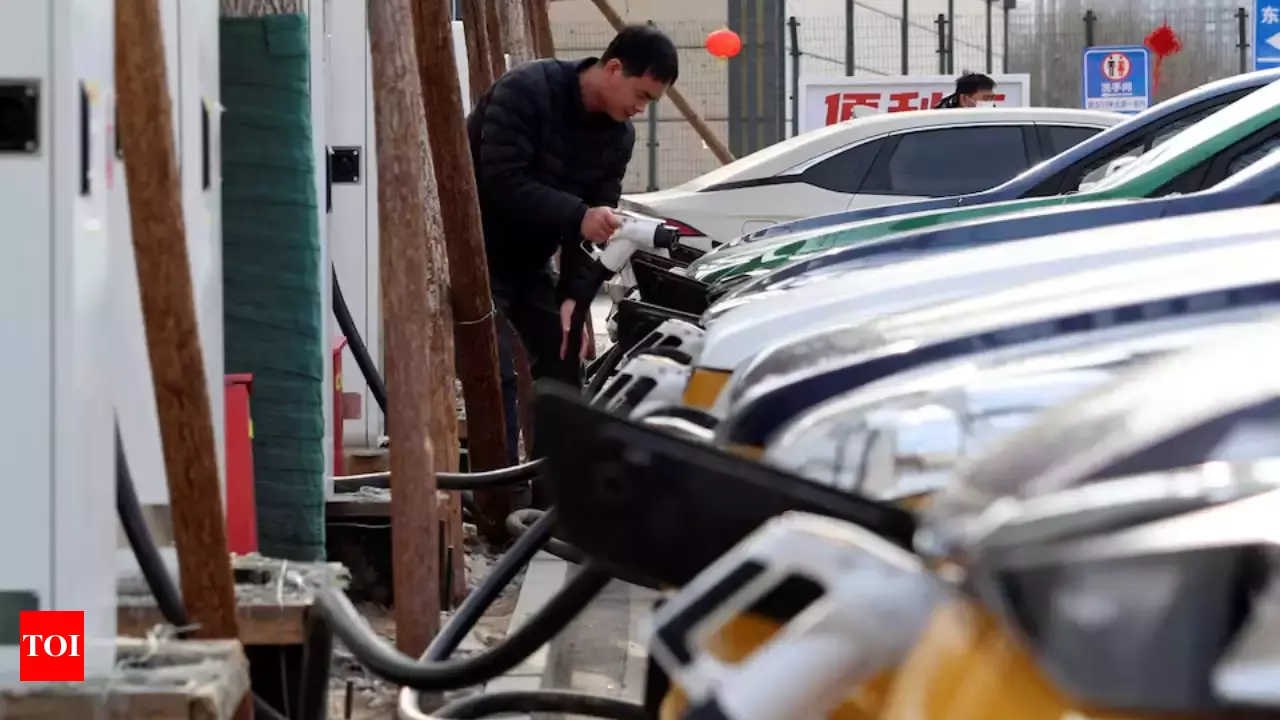Germany is set to abstain in Monday’s vote by EU member states on imposing provisional tariffs on China-made electric vehicles, sources told Reuters. The vote marks the first test of support for the EU’s significant trade case.
Provisional tariffs of up to 37.6% on Chinese EVs do not require member state support, but final tariffs could be blocked if a qualified majority of the EU’s 27 members opposes them. An abstention by Germany signals support for the Commission’s ongoing negotiations with Beijing.
Germany, the EU’s largest economy, will abstain due to the ongoing anti-subsidy investigation and negotiations between the EU Commission and China, the sources said. This move is seen as “critical solidarity” with the EU Commission, according to one source. German carmakers, who sold a third of their vehicles in China last year, oppose the tariffs due to fears of retaliation and a trade conflict.
France has strongly backed the case, while Hungary has condemned it. Other member states remain undecided, marking this vote as the first official test of support for the Commission’s tariff initiative. The EU initiated the probe without an industry complaint, a first for such a trade case.
Chancellor Olaf Scholz, asked about the abstention, said Germany expects the EU executive to reach an agreement with China on EVs, benefiting Europe’s car industry. He did not confirm how Germany would vote but emphasized the importance of fair competition.
The first vote, which is confidential and non-binding, allows the Commission to impose duties provisionally, with consultation from EU members. A final vote at the end of the investigation will determine if definitive duties, typically lasting five years, will be imposed. A qualified majority, requiring 15 EU members representing 65% of the EU population, could block the proposal.
The Commission argues that duties are necessary to counteract subsidies and ensure a level playing field, not to exclude Chinese car makers, unlike the U.S.’s proposed 100% tariff.
Provisional tariffs of up to 37.6% on Chinese EVs do not require member state support, but final tariffs could be blocked if a qualified majority of the EU’s 27 members opposes them. An abstention by Germany signals support for the Commission’s ongoing negotiations with Beijing.
Germany, the EU’s largest economy, will abstain due to the ongoing anti-subsidy investigation and negotiations between the EU Commission and China, the sources said. This move is seen as “critical solidarity” with the EU Commission, according to one source. German carmakers, who sold a third of their vehicles in China last year, oppose the tariffs due to fears of retaliation and a trade conflict.
France has strongly backed the case, while Hungary has condemned it. Other member states remain undecided, marking this vote as the first official test of support for the Commission’s tariff initiative. The EU initiated the probe without an industry complaint, a first for such a trade case.
Chancellor Olaf Scholz, asked about the abstention, said Germany expects the EU executive to reach an agreement with China on EVs, benefiting Europe’s car industry. He did not confirm how Germany would vote but emphasized the importance of fair competition.
The first vote, which is confidential and non-binding, allows the Commission to impose duties provisionally, with consultation from EU members. A final vote at the end of the investigation will determine if definitive duties, typically lasting five years, will be imposed. A qualified majority, requiring 15 EU members representing 65% of the EU population, could block the proposal.
The Commission argues that duties are necessary to counteract subsidies and ensure a level playing field, not to exclude Chinese car makers, unlike the U.S.’s proposed 100% tariff.

